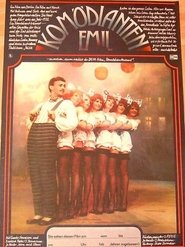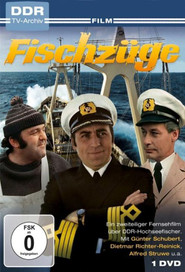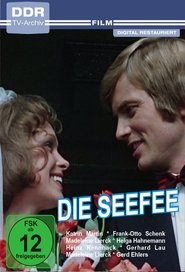detail profile paul arenkens
Peran Yang Di Mainkan Paul Arenkens
 Otto is turning 65 and a big...
Otto is turning 65 and a big...Alter schützt vor Liebe nicht 1990
Otto is turning 65 and a big celebration with relatives and friends is coming up. What does life bring? A comfortable retirement, looking after his beloved grandchildren, lamenting the aches and pains of old age. None of that. Otto falls in love with Klara and the two of them are looking for a place to live together. What is in itself a matter of course comes up against many barriers. A turbulent time begins for the two newly in love...
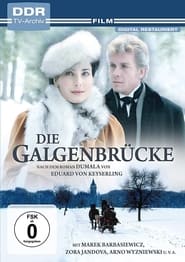 In the wintry Baltics a century...
In the wintry Baltics a century...Die Galgenbrücke 1989
In the wintry Baltics, a century is drawing to a close and with it the era of the old Junker aristocracy. Pastor Erwin Wenger falls in love with the beautiful Baroness von Werland. This love plunges him into serious conflicts of conscience, especially as he does not appear to be the young woman's only admirer. Her husband, the ailing Baron von Werland, seeks to be close to the pastor. And it is not only the baron's health and the old castle that increasingly deteriorate, but the man of God's moral stability also begins to waver ...
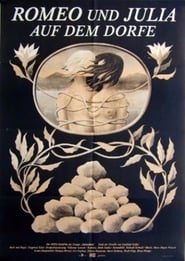 Two farmers Grimm and Melcher were...
Two farmers Grimm and Melcher were...Romeo und Julia auf dem Dorfe 1984
Two farmers, Grimm and Melcher, were once on friendly terms, but a petty argument over a piece of land has since turned them into implacable enemies. Their two children- Veronika and Fabian- used to be childhood friends. When they meet again as young adults, they instantly fall in love, despite the bitter feud between their families. With no hope for a future together, the two seek to end their lives in this retelling of the classic story by Shakespeare.
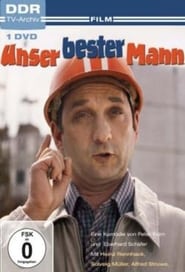 The main character Otto the best...
The main character Otto the best...Our Best Man 1983
The main character Otto, the "best man", is a copy of the illustrious Mister Bean. He takes on an apprenticeship as a building-worker, which makes him a member of a building brigade. At the same time Otto tries to start a love affair, which he handles even clumsier. Never the less Otto makes progress with the lady in question, a single mother, who apparently doesn't mind. Actually he wanted her sister, but a retired Leninist party member changes his mind. This gives him the courage to persevere in his work, albeit with the helping hand of the obligatory retired party member. And behold, in the end Otto invents a new method of building, which saves the brigade many hours of work.
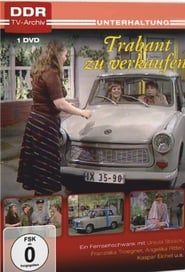 Brigitte Carola and Susi can hardly...
Brigitte Carola and Susi can hardly...Trabant zu verkaufen 1980
Brigitte, Carola and Susi can hardly believe their luck. They have hit the jackpot and won a brand new Trabi! Unfortunately, none of the three have a driving license. So they quickly agree to sell the car. Soon there are more interested parties than the three ladies would like and disagreements about who will be the lucky new owner. Plumber Oskar Zahl promptly completes Brigitte's bathroom renovation because he thinks he has a chance of getting the car. Carola hopes that her new flame, choir singer Anastasius Vogel, will buy the Trabi for her. And Susi's fiancé wants to surprise his future wife with the car. The three car owners put all the applicants through their paces and ultimately make a wise decision.
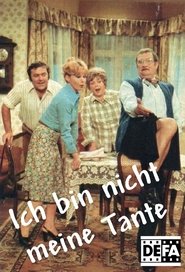 Karla Geisler is a woman with...
Karla Geisler is a woman with...Ich bin nicht meine Tante 1978
Karla Geisler is a woman with her heart in the right place and a very quick mouth - the tenant on the first floor is practically the good soul of the entire building community. Karla is also the aunt of a 32-year-old single man called Karl, who is not lacking in imagination. Every Wednesday, he invites himself over to Auntie's for coffee and cake so that he can do some geological studies in peace.
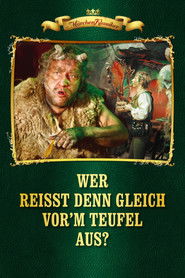 Based on a fairy tale by...
Based on a fairy tale by...Who's Afraid of the Devil 1977
Based on a fairy tale by the Brothers Grimm: Jakob is a poor farmer′s boy. Because of his timidity that even makes him run away from mice, he is often ridiculed by other people. Even the king is ill-disposed towards him. One day he sends Jakob to the devil to rob him of three golden hairs. This is supposed to be Jakob′s certain death. But naïve Jakob gets going and on his way even promises the oppressed subjects of the king to ask the devil for a way out of their misery.
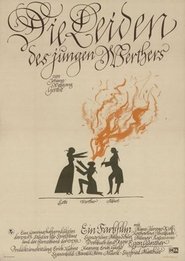 The young and rebellious Werther is...
The young and rebellious Werther is...The Sorrows of Young Werther 1976
The young and rebellious Werther is passionately, but hopelessly, in love with Lotte. Although he knows that she is married to somebody who can offer her a secure future, Werther tries to be near her. Lotte cannot decide between these two men. She eventually rejects Werther, who does not survive her decision.
 In medieval Germany poor and witty...
In medieval Germany poor and witty...Till Eulenspiegel 1975
In medieval Germany, poor and witty Till Eulenspiegel fools and cheats citizens, churchmen, and landlords. Although in most cases he uses his wit for personal well-being, he often helps the poor and weak. Eventually, he gains an influential but also dangerous position as royal fool at the court of the emperor.
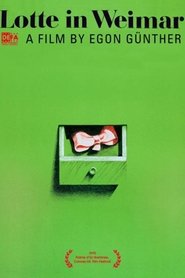 Johann Wolfgang von Goethe 17491832 was the...
Johann Wolfgang von Goethe 17491832 was the...Lotte in Weimar 1975
Johann Wolfgang von Goethe (1749-1832) was the author of Werther, the romantic novel that was transformed into a play during Goethe's lifetime and which initiated the whole German romantic movement. The book's story tells of young love and suicide. In this East German film, based on a book by Thomas Mann, Lotte (Lilli Palmer) was the woman who served as the model for the heroine in the novel Werther. She comes to Goethe's hometown for a visit, and her experiences there eerily re-create episodes from the book. Goethe comes across as a pompous old bore, and his friends as pandering sycophants, in this very proper communist party-sponsored, anti-heroic movie.
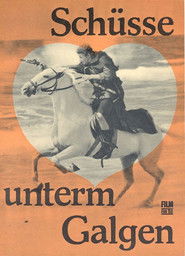 In Scotland in 1751 young David Balfour...
In Scotland in 1751 young David Balfour...Shots Under the Gallows 1968
In Scotland in 1751, young David Balfour is shanghaied aboard a ship where he meets Jacobite rebel Alan Breck Stewart with whom he escapes to the Scottish Highlands, dodging the redcoats.
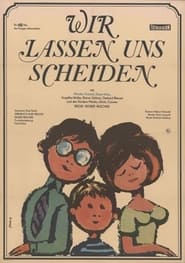 Monika and Johannes are married With...
Monika and Johannes are married With...We Are Getting Divorced 1968
Monika and Johannes are married. With increasing frequency, their son Manni becomes the focus of their arguments. Since the two cannot agree to a compromise, they decide to break up. The ten-year-old Manni is supposed to spend four weeks with Monika followed by four weeks with Johannes on an alternating basis. They want to prove to each other who has the better parenting skills. The plan fails, however, because Manni is very good at playing his parents off against each other. When Monika and Johannes finally see through their son’s game, they realize that their way of life does not lead to better parenting and they conclude that good parenting can only be achieved if they work together.

